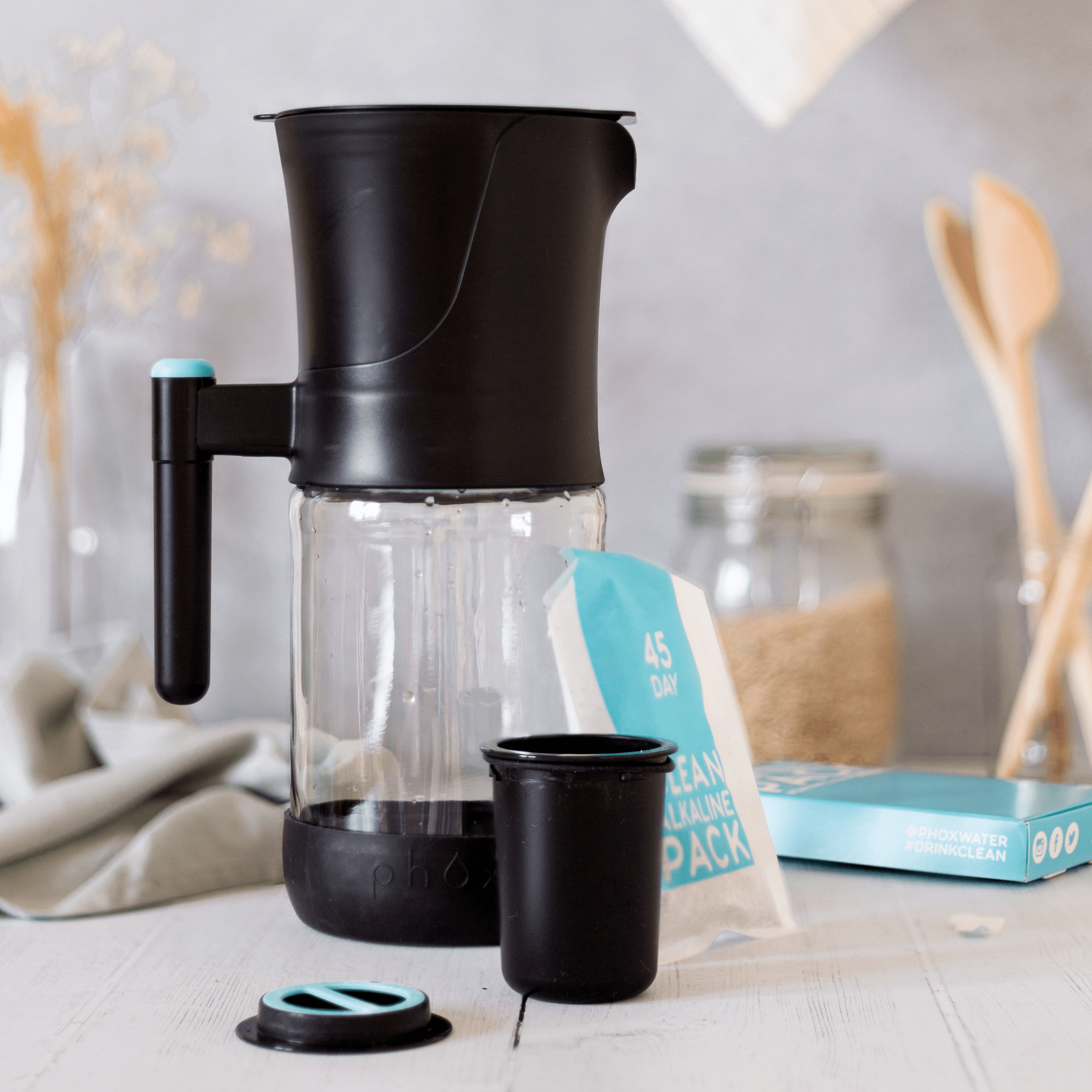Chlorine in Your Tap Water: Is It Safe?
Chlorine has been keeping our water safe since the late 1800s, when it was first added to the UK water supply to tackle harmful bacteria responsible for diseases like cholera and legionella. Its effectiveness made chlorine a familiar part of everyday life, helping purify everything from drinking water to swimming pools.
Most people don’t think twice about chlorine in their tap water, but some still wonder about the potential side effects that come from drinking it.
At Phox, we’re on a mission to help you enjoy the freshest, healthiest water possible. Keep reading for our guide on how safe chlorinated tap water really is, and how you can make your drinking water even better!
Is chlorine in tap water safe?
The short answer is yes, chlorine in tap water is generally safe. The levels added to drinking water are carefully regulated to kill harmful microorganisms without posing major risks to human health. Most water supplies now maintain chlorine levels around 0.5 mg/L, and the World Health Organization (WHO) considers up to 5 mg/L to be acceptable.
That said, while the chlorine levels in drinking water aren’t considered a major health concern, there are a few potential side effects worth noting.

What are the potential effects of chlorine in water?
There’s plenty of discussion about the potential effects of consuming chlorinated water, and while the levels in your tap water are considered scientifically safe, regular exposure to chlorine might not be the most ideal choice in the long run. Here’s why:
Disinfection byproducts (DBPs)
When chlorine is used to disinfect drinking water, it can create byproducts called Trihalomethanes (THMs). These byproducts have been linked to the production of free radicals in the body, which are known to cause cell damage.
Some studies have linked this type of cell damage to an increased risk of bladder and rectal cancer, while others suggest they might cause adverse reproductive outcomes, such as miscarriages and birth defects. Although the evidence isn’t conclusive and more research is needed, it’s still something to keep in mind.
Altered taste and smell
On top of the potential health concerns, chlorine can also affect the taste and smell of your water. It can give tap water a slightly bitter flavour and a sharp, chemical smell like the one you’ll find at your local swimming pool. Many people find this off-putting and may end up drinking less water because of it.
Skin and eye irritation
In rare cases, people with very sensitive skin or eyes may experience irritation from exposure to chlorinated water. These effects are usually temporary and go away once exposure stops, but they’re an unpleasant experience nonetheless.
What to do if you’re worried about chlorine in your tap water
If you're concerned about the presence of chlorine in your tap water, there are a few things you can do:
Check your local water quality
Investigating the quality of your water will let you stay informed about the levels of chlorine and other potential contaminants in your supply. There are a few ways to do this, like reaching out to your water supplier for details or getting advice from the Drinking Water Inspectorate. You can visit this government page for more helpful tips and steps to take.
Invest in a water softener
If you live in a hard water area, using a water softener can help reduce the amount of chlorine you’re exposed to during bathing and showering. This can be especially helpful if chlorine has been irritating your eyes or skin.
Not sure if you have hard water? Take our quick water quiz to find out!
Use a water filter
Getting a water filter is the easiest way to make your water cleaner. The right filter can get rid of chlorine, lead, odours, and other impurities, giving you water that’s fresh, healthy, and tastes great.
At Phox, we offer three fantastic refill options for our filters: Clean, Softener, and Alkaline. Each one eliminates impurities such as chlorine while providing unique benefits:
- Our Clean and Softener packs effectively tackle limescale, making them perfect for hard water areas.
- Looking to boost your water with essential minerals like magnesium? Our Alkaline pack is the one for you.

What makes Phox even better? Every refill pack is eco-friendly and pairs with our Phox Water jugs or refillable Brita compatible cartridges, making them better for the planet and better for you.
Sip on fresh, chlorine-free water and feel great knowing you’re making a greener choice with Phox. Check out our range today!
SHOP WATER FILTER JUGS

